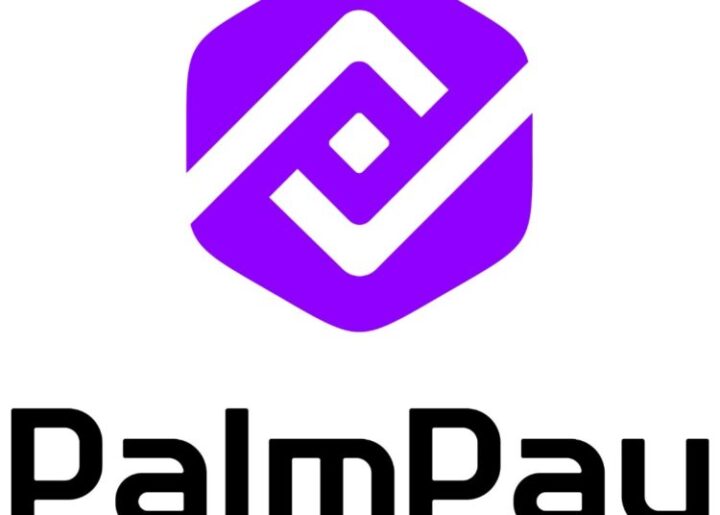PalmPay, Nigeria’s emerging digital banking platform, has garnered considerable acclaim in recent months by securing several high-profile awards, recognizing its disruptive impact on financial inclusion and customer service in the country’s fintech landscape. Since its 2019 launch, the company has steadily expanded both its user base and product suite, cementing its reputation as a leading force in democratizing access to digital financial services.
The latest honor bestowed upon PalmPay—the “Most Outstanding Fintech Driving Financial Inclusion” award at the BrandCom Awards 2024—marks a high watermark in the company’s awards calendar. This recognition is seen as a testament to PalmPay’s sustained contribution to bringing underserved and unbanked segments of the population into the formal financial ecosystem. Such recognition underscores the platform’s success in promoting economic empowerment at the grassroots level.

PalmPay’s roots lie in serving Nigerians who found traditional banking channels inaccessible or overly burdensome. From its earliest days, the company prioritized simplicity and inclusivity—offering basic services such as instant bank transfers, bill payments, airtime purchases, and savings tools. PalmPay achieved that by enabling mobile phone users to seamlessly carry out essential transactions without needing a traditional bank account.
A cornerstone of PalmPay’s strategy is its wide-reaching agent network. With hundreds of thousands of agents and merchants across Nigeria, the platform bridged the gap between digital adoption and physical access points. These agents serve communities without bank branch presence and support users who lack smartphones or internet connectivity. Analysts say this hybrid model helped PalmPay onboard users who otherwise would remain financially excluded.
By mid‑2025, PalmPay’s platform had recorded tens of millions of registered users and connected over a million small and medium-sized businesses into its ecosystem. Many of these users cited PalmPay as their first-ever formal financial account. Business operators, especially in informal markets, also testify that low-cost transfers, cashback incentives, and agent-driven onboarding boosted acceptance and network effects.
Beyond domestic expansion, PalmPay’s vision extends across borders. The fintech has rolled out services in several African markets—including Ghana and Tanzania—as well as in select global financial hubs. This growth illustrates its ambition to scale beyond Nigeria and establish itself as a pan‑African digital financial services provider.
PalmPay’s recent accolades encompass more than just local recognition. At the 2024 International Financial Inclusion Conference in Lagos, it was honored with titles such as “Financial Inclusion Agent of the Year” and “Key Driver of Financial Inclusion.” These awards reflect partnerships with regulatory bodies and national inclusion frameworks, highlighting the fintech’s alignment with broader economic empowerment goals.
The executive leadership at PalmPay credits these recognitions to its purpose-driven model. Rather than chasing elite customers or large corporates, PalmPay’s core mission has been to serve underbanked and marginalized groups. Its marketing and communications team emphasize that financial inclusion goes beyond access—it’s also about reliability, affordability, and ease of use.
While industry watchers celebrate PalmPay’s awards, they also flag challenges ahead. Sustaining its impact requires deeper rollout of credit and savings products, stronger fraud prevention measures, and continued regulatory compliance. Critics suggest the company must guard against overreaching into risky lending practices and ensure customer protection remains a priority.
Still, PalmPay has demonstrated responsiveness. It has introduced features such as Unstructured Supplementary Service Data (USSD) banking—enabling offline transactions for non-smartphone users—and improved identity verification for secure onboarding. Feedback from users underscores how these practical enhancements drive agent-led adoption and digital literacy.
For small business owners, PalmPay offers tools that simplify payment acceptance and cash flow management. These include merchant APIs, simplified invoicing, and batch payment capabilities. SMEs, many of which operate without bank accounts, report that PalmPay’s integrated services enable them to grow revenue while minimizing transaction friction.
Investors and fintech observers highlight PalmPay’s ability to attract major funding as a sign of market trust. Backed by international investors, the fintech has secured substantial capital to fuel expansion. Its early partnership with a major mobile phone manufacturer, which preloaded the PalmPay app on its devices, fast‑tracked onboarding in rural and peri‑urban areas.
Looking forward, analysts say PalmPay’s challenge will be transitioning from a focus on user acquisition to sustainable monetization. This entails growing value-added services such as micro‑loans, insurance offerings, savings products, and cross-border remittance—in ways that protect users while diversifying revenue.
The broader significance of these recent recognitions lies in the message they send: fintech innovation, when geared toward inclusion, can reshape financial participation at scale. PalmPay’s awards highlight what is possible when technology, regulatory support, and empathetic design converge.
In closing, PalmPay’s recent honors for excellence in fintech and financial inclusion validate its foundational mission to make banking accessible. As Nigeria continues its digital transformation, the company’s user-centric model and expanding footprint position it as a bellwether for how inclusive technology can empower millions.
Support InfoStride News' Credible Journalism: Only credible journalism can guarantee a fair, accountable and transparent society, including democracy and government. It involves a lot of efforts and money. We need your support. Click here to Donate
